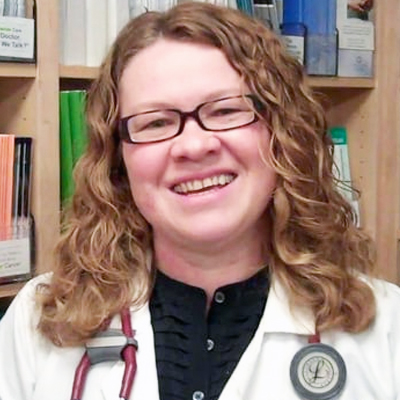Drawing blood samples to examine cancer cells
Cancer is very difficult to treat because it constantly changes under the pressure of treatment. Therefore, it would be critical to identify what exact abnormalities are making the cancer cells grow. The typical way to study cancer is to conduct a biopsy, or removing the cancer cells from patients with a needle or surgery to examine them, but this kind of biopsy can lead to several complications and therefore is difficult to justify doing repeatedly. In order to avoid these complications and effectively simplify the process, Dr. Lyudmila Bazhenova, a Clinical Professor of Medicine at the University of California, San Diego, focuses her research on liquid biopsy and studies cancer by merely collecting a tube of blood. Using the liquid biopsy as opposed to the traditional tissue biopsy, Dr. Bazhenova hopes to see improvements in treatments and, ultimately, in survival.
Liquid biopsy allows researchers to learn about patients’ cancer through a simple blood draw. In cancer patients, blood carries circulating tumor cells (CTC) and circulating cell free DNA (cfDNA). By examining these cells in the blood using a special proprietary device that helps reach only the cells needed for investigation, Dr. Bazhenova hopes to understand special mutations -- or broken genes -- that could be driving cancer to grow, especially in the lungs. Simple yet thorough, the processes involved in extracting cancer cells through liquid biopsy can be applied to all areas of cancer and result in advancements in cancer research as a whole.
Some questions that Dr. Bazhenova is addressing include:
- Can we predict patient responses to chemotherapy by studying the cancer cells? Through clinical trials and collecting blood from patients, Dr. Bazhenova is able to study the cancer cells -- specifically its absolute number as well as their internal composure -- and the blood as it follows the course of the disease. Such translational and clinical research will allow a real-time view of patients’ cancer as it changes under the pressure of chemotherapy, providing insight into how to develop better treatments and solutions.
- Can we improve the selection process for patients who need chemotherapy and patients who do not need chemotherapy after tumor removal surgery? Because liquid biopsy is so simple and cost effective, Dr. Bazhenova has found it helpful in determining which patients need what kind of treatments. This procedure will not only effectively address the problem in each individual patient but also avoid any unnecessary therapies that may otherwise harm the patient more than heal.
- Can we predict when a tumor is developing resistance? Typically, cancer patients are given a chemotherapy and imaged with a CT scan every two months for progression. This poses a problem because two months is a long time to determine the success of the treatments, but to scan patients every week is extremely costly and involves too much radiation. By looking at the tumor cells in the blood, however, researchers can envision the results of chemotherapy as well as predict the efficacy of chemotherapy.
- Can we detect cancer at its early stage? Currently, we do not have effective strategies available for detecting lung cancer cells at an early stage. Using liquid biopsy, Dr. Bazhenova hopes to develop screening methods that can identify cancer early and facilitate treatments accordingly.
- What makes the cancer spread? By understanding the exact mechanisms of metastasis and studying what it is about the tumor cells that makes them settle in a certain region of the body -- e.g. in lungs as opposed to a brain, or a kidney rather than the stomach--, Dr. Bazhenova hopes to prevent metastasis in cancer patients.
Bio
Dr. Lyudmila Bazhenova is a clinician who has traveled from Russia to contribute to the ongoing cancer research in the US. As she treats cancer patients everyday and watches them pass away, she is deeply moved to conduct clinical trials and participate in research to increase the survival rate of these cancer patients. Current statistics shows that 85% of patients diagnosed with lung cancer will eventually die, and Dr. Bazhenova is determined to stop it.
Outside of her lab, Dr. Bazhenova is a “skate mom” of a young daughter who is a competitive figure skater. Calling it the “after-work job,” when she is not with her patients, Dr. Bazhenova drives her daughter through the town from rink to rink and enjoys watching her practice. Raising and supporting her athletic children, Dr. Bazhenova also enjoys spending time with her young son who is now into fencing.
For more information, visit http://hem-onc.ucsd.edu/faculty/bazhenova.shtml


